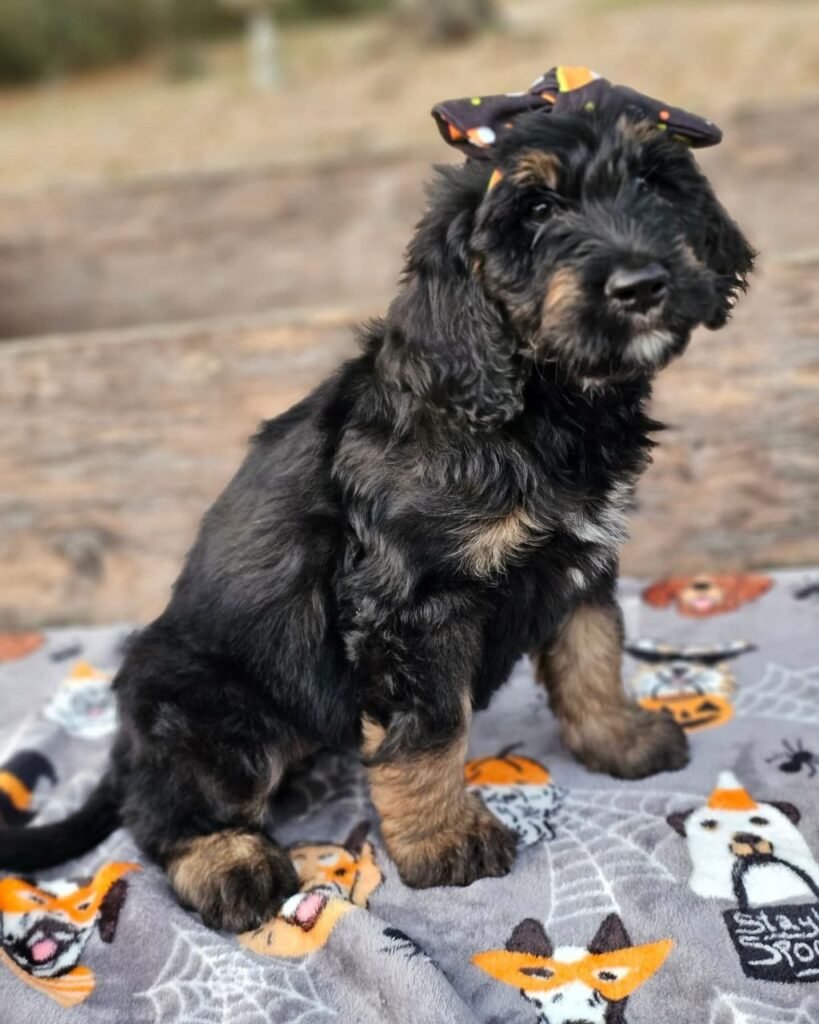A full-grown Standard Bernedoodle is the largest size of the Bernedoodle breed, and their adult size depends on the genetics of their parent dogs (a Standard Poodle and a Bernese Mountain Dog).
Full-Grown Standard Bernedoodle Size:
- Weight:
- Typically 70–90 pounds.
- Some may weigh up to 100 pounds, especially males or those with larger parent dogs.
- Height:
- 23–29 inches tall at the shoulder.
Factors That Influence Size:
- Parental Genetics:
- If the Standard Poodle or Bernese Mountain Dog parent is on the larger side, the puppy may also grow to be bigger.
- Diet and Health:
- Proper nutrition and care during growth stages can affect their final size.
- Gender:
- Males are often larger and heavier than females.
- Generation:
- F1 (first-generation) Bernedoodles may grow larger compared to multi-generational Bernedoodles due to hybrid genetics.
Comparison with Other Bernedoodle Sizes:
- Mini Bernedoodle: Weighs 25–50 pounds and stands 18–22 inches tall.
- Tiny/Micro Bernedoodle: Weighs 10–24 pounds and stands 12–17 inches tall.
What to Expect in a Full-Grown Standard Bernedoodle:
- Physical Build:
- Sturdy and athletic with a well-proportioned body.
- Often resembles a large teddy bear due to their fluffy coat.
- Coat:
- Wavy or curly coat that is low-shedding and hypoallergenic for many owners.
- Coat colors include tri-color (black, white, and rust), sable, merle, and sometimes solid shades.
- Temperament:
- Calm, loving, and loyal. Perfect for families, especially those with children.
- Intelligent and playful, inherited from the Poodle side.
- Energy Levels:
- Moderate to high energy; requires daily exercise like walks, playtime, or backyard activities.
- Space Requirements:
- They thrive in homes with ample space or large yards but can adapt to smaller living environments if they get enough exercise.
Care Tips for Standard Bernedoodles:
- Grooming:
- Regular brushing to prevent matting, especially for curly-coated dogs.
- Professional grooming every 6–8 weeks.
- Exercise:
- At least 60 minutes of daily activity to maintain physical and mental health.
- Training:
- Start training and socialization early to manage their size and energy effectively.
- Health Care:
- Regular vet checkups to monitor for potential issues like hip dysplasia or bloat.
A full-grown Standard Bernedoodle is a wonderful companion, known for its affectionate nature, intelligence, and striking appearance. Their large size and friendly demeanor make them a favorite among dog lovers!

